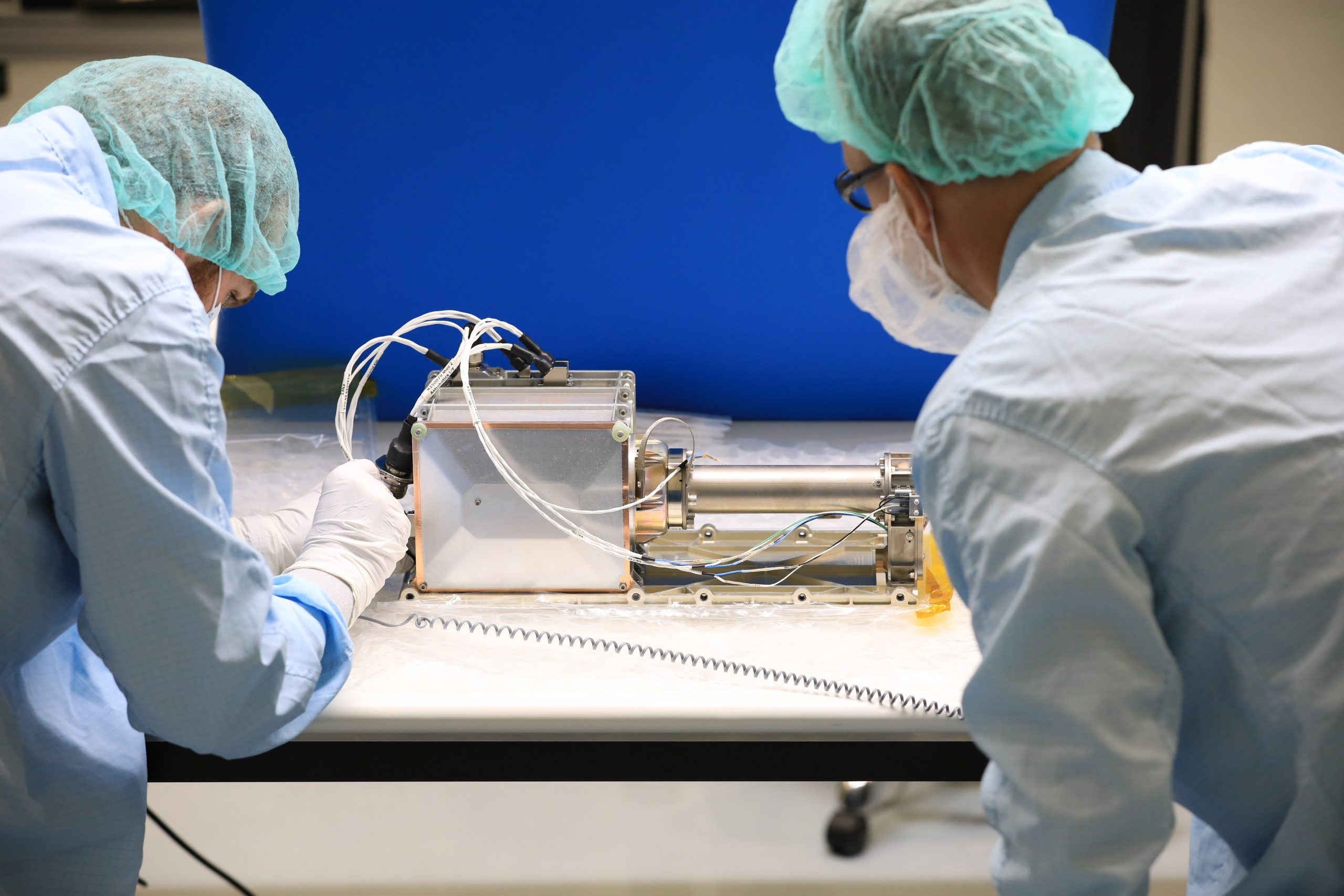
A versatile instrument designed to help analyze the chemical makeup of lunar landing sites and study water on the Moon as part of the Artemis program has completed an important step in its final assembly.
Teams working on the Mass Spectrometer Observing Lunar Operations, or MSolo, at NASA’s Kennedy Space Center in Florida installed the radiator – a critical component that will keep the instrument’s temperature stable in the extreme heat and cold it will encounter on the Moon.
MSolo is a commercial off-the-shelf mass spectrometer modified to work in space. NASA will use MSolo to identify molecules on the surface of the Moon. Multiple MSolo instruments are destined for the Moon via the help of NASA’s commercial partners, landing scientific instruments and technology demonstrations on the lunar surface as part of the Commercial Lunar Payload Services (CLPS) initiative.
NASA has scheduled MSolo instruments to launch on future robotic missions starting in 2021 at Lacus Mortis, a large crater on the near side of the Moon. MSolo is a key component of the Polar Resources Ice Mining Experiment, or PRIME-1, instrument suite that will use a drill to harvest ice just below the lunar surface in 2022. Later, the technology will be one of three instruments on board NASA’s water-hunting Volatiles Investigating Polar Exploration Rover, VIPER, scheduled to launch to the Moon’s South Pole in late 2023.
On VIPER, the MSolo instrument will help evaluate subsurface soil cuttings brought up by a 3-foot drill in search of water ice and other volatiles that future missions could use as resources. The mission will create the most detailed view of the Moon’s water to date – helping to pave the way for the lunar surface missions with crew beginning in 2024.
